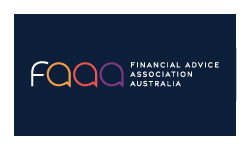
OverviewAbout this course
The Graduate Diploma of Financial Planning has been designed to meet the educational requirements for financial advisers set by the Financial Adviser Standards (FAS). The Graduate Diploma requires one year of study and is a FAS accredited course.
Learn from financial planning professionals and benefit from TAFE NSW’s industry connections, including the Association of Financial Advisers (AFA). With full time, part time and online study available, you can choose the option that makes sense for your career and lifestyle.
Course duration
1 year full time or 2 years part time
CRICOS Code
O100525
International students
OutcomesWhat you'll gain
Learning outcomes
Through a mixture of theory and practical course work, learn to:
Follow regulatory requirements when providing advice on superannuation, retirement and estate planning, insurance and investment
Develop and analyse financial solutions to maximise the financial wellbeing of clients
Understand complex financial information to give tailored advice that accommodates the needs and concerns of clients
Engage with colleagues and industry stakeholders to expand your knowledge of the financial services sector
Work independently and as part of a team to provide researched, ethical and customised financial advice to clients and stakeholders
Course outcomes
Develop specialist skills to gain an advantage in the job market
Graduate with Graduate Diploma (AQF 8)
Practical, industry-focused skills in financial planning
Eligibility for new entrants to begin their professional year
Government approved degree (formerly FASEA approved course). Also accredited by the Tertiary Education Quality and Standards Agency (TEQSA)
SuitabilityIs this course right for you?
Entry requirements
This course requires evidence of previous experience or study before you can enrol
You must demonstrate that you have achieved one of the following:
Hold a financial planning diploma or advanced diploma and be currently practising as a financial planner or adviser or
Hold a bachelor's degree in any discipline, including financial services degrees not on the Financial Adviser Standards (FAS) approved list (formerly approved by the Financial Adviser Standards and Ethics Authority [FASEA])
Note:
Your certificates, transcripts and other entry requirement evidence must be certified through a Justice of the Peace or other authorising officer
Please ensure to attach all evidence when applying for this course to demonstrate the minimum entry requirements and for ease of the enrolment process.
Completion requirements
During your study you’ll need to provide your teacher with the following evidence:
Entry recommendations
To be prepared for this course, we recommend that you have:
Checked the requirements set by the Australian Government Treasury’s Financial Adviser Standards
Experience working as a financial planner or adviser, or wish to commence working as a financial planner
Good communication skills
An interest in helping others
Curiosity and attention to detail
A PC or laptop to access study materials and complete your assessments
You do not require an ATAR score for entry into this course.
If you are unable to meet the entry requirements, you may be eligible for special admission.
Please continue with your application and you will be guided to identify as mature aged (at least 21 years old in your first year of study) or disadvantaged (disability, serious or chronic illness, interrupted education, lack of support for study, serious personal problems and/or serious family responsibilities). Please contact us to find out more.
TAFE NSW is committed to meeting the learning needs of every community. Meeting these needs can mean there are additional entry requirements at different campus locations. Check your preferred location for further requirements. If you need help preparing for study, contact us to find out how we can support you.
PathwaysFuture career and study options
Career pathways
Our graduates go onto roles like:
Financial Investment Adviser
Financial Investment Advisers develop and implement financial plans for individuals or organisations, and advise on investment strategies and their taxation implications, securities, insurance, pension plans and real estate.
Full-time share Full-time workers usually work 35 hours or more a week (in all their jobs combined).
83%
Employment size Employment size is the number of workers who do this as their main job.
11,700 workers
Average age This is the average age of all workers in this job.
42 years
Weekly pay Median earnings are shown for full-time, non-managerial employees paid at the adult rate, before tax or any amounts that are salary sacrificed. These figures are a guide to earnings only and should not be used to determine a wage rate.
$2,250
Average full-time The average full-time hours that people in this role work each week.
44 hours
Skill level rating Skill level ratings are based on the range and complexity of job roles. In general, the higher the skill level, the more formal education and training, previous experience or on-the-job training needed to be good at the job.
Very high
Gender share
30% female
Future growth The Department of Employment, Skills, Small and Family Business estimates the likely change in number of workers in this role, or industry, over the next 5 years. Future growth is the likely percentage change compared to all other job roles.
Strong Growth
Other jobs include: Financial planner, Specialist financial planner, Senior financial planner, Financial planning manager, Client relationship manager, Assistant financial planner, Paraplanner, Financial coach, Investment analyst and Investment manager
Licensing
Graduates of this course will be eligible to apply for membership to the Financial Advice Association Australia (FAAA). This course also meets the minimum education requirements for the Financial Adviser Standards (FAS) set by the Australian Government Treasury (formerly set by the Financial Adviser Standards and Ethics Authority (FASEA)) and qualifies new entrants to begin their professional year to register as a financial adviser. Visit FAS and Australian Securities and Investments Commission (ASIC) for more information about the professional year for new entrants.
Study pathways
Take your study further with other courses offered at TAFE NSW:
Previous study0 Courses
Alternative pathways into this course
The Graduate Diploma of Financial Planning does not have any pre-requisite courses.
Further study0 Courses
Advance your skills to take your career to the next level
The Graduate Diploma of Financial Planning does not have any post-graduate courses.
Related study0 Courses
Strengthen your expertise and expand your employability
The Graduate Diploma of Financial Planning does not have any related courses.
Your experience counts
At TAFE NSW, we recognise your previous study and work experience. You can apply for recognition of prior learning (https://www.tafensw.edu.au/enrol/recognition-credit-transfers) or a credit transfer with any of our courses. If you're successful you'll get your qualification faster.
SubjectsSubjects in this course
Completion of this course requires you to successfully complete 8 subjects (80 credit points) made up of 8 core subjects.
Core Subjects
Elective Subjects
IndustryIndustry Endorsement
The Graduate Diploma of Financial Planning is accredited by the Financial Advice Association Australia (FAAA). You may be eligible to apply for membership to this accrediting body.

Financial Advice Association Australia (FAAA)
TAFE NSW servicesFacilities and support
TAFE NSW provides support services across all campus locations and online. Whatever your needs or circumstances, we have the people, resources, counselling and facilities to support you in focusing on your studies.
TAFE NSW Disability Support Service
TAFE NSW Language, Literacy and Numeracy (LLN) support
TAFE NSW Aboriginal Support; Learner support (ABE)
TAFE NSW Careers, Counselling and Pathways Service
TAFE NSW Libraries
Scholarship programs – be supported as you explore your talents and fulfil your potential
Read&Write literacy and study support software is available free for all TAFE NSW students to use while studying on campus and at home
LinkedIn Learning – an online resource which offers innovative courses and tutorials to improve your personal and professional skills
Student associations – get social with our student community
Info sessionsWant to know more?
There are a total of 2 information sessions planned for this course. They'll take place at different locations across the state.
You can select a study option below to see the sessions available. Or you can view all sessions related to Art and Design